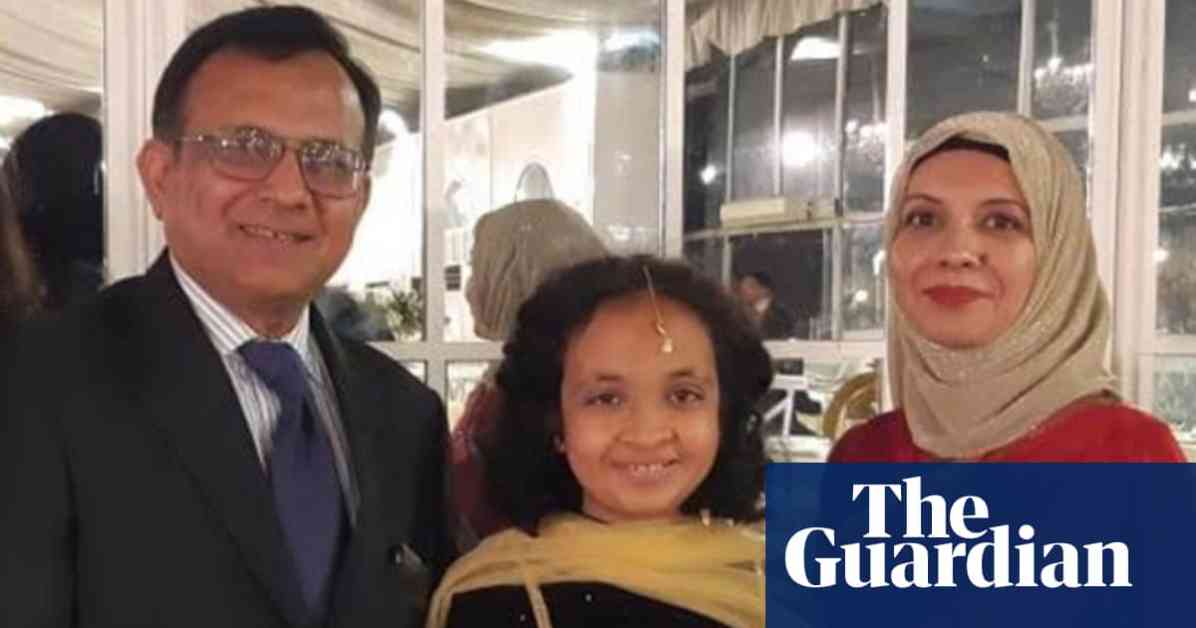GP Faces Deportation from UK Due to Visa Denial for Autistic Daughter
An experienced and highly regarded doctor working at a GP surgery in east London is facing the heartbreaking decision to leave his job because the Home Office is separating him from his wife and autistic daughter. Tajwer Siddiqui, a 59-year-old doctor from Pakistan, has worked in medicine for decades in various countries, including Saudi Arabia. He successfully applied for a highly skilled worker visa to work at an NHS GP surgery in Ilford, east London, called Doctor’s House.
Family Struggles with Visa Denial for Autistic Daughter
Siddiqui’s wife, Shehlar Tajwer, is also a qualified family doctor who was granted a visa to work in the UK as a dependant of her husband. The couple has a 19-year-old daughter, Alina Tajwer Siddiqui, who has autism and requires constant care and support. Unfortunately, the Home Office has refused Alina a visa to come to the UK, citing a lack of “compassionate or compelling circumstances” to justify her permission to live with her parents.
The family submitted extensive medical evidence detailing Alina’s condition and her dependency on her parents, but the Home Office officials focused on a single sentence in a report, disregarding the overall impact on Alina’s quality of life. Despite the family’s efforts to provide comprehensive information, the decision to deny Alina’s visa has left them in a state of limbo.
Impact on Healthcare and Family
The decision to separate Alina from her parents has not only caused emotional distress but also practical implications for Siddiqui’s work as a doctor. Ikram Khan, the practice business manager at Doctor’s House surgery, emphasized the valuable contribution Siddiqui has made to patient care and the potential loss to the medical team if he is forced to leave his position.
Siddiqui expressed his dilemma, stating that without his wife and daughter by his side, he may have no choice but to leave his job and return to Pakistan to care for his family. The prospect of this separation has raised concerns about the impact on Alina’s well-being and the family’s ability to provide the necessary support for her.
Challenges in Immigration Policies
The case of Siddiqui and his family sheds light on the challenges faced by healthcare workers and their families under strict immigration policies. The tightening of rules for health and care workers has led to increased scrutiny and limitations on family reunification, creating additional barriers for professionals seeking to work in the UK.
The decision to deny Alina’s visa highlights the complexities of navigating immigration systems and the potential consequences of rigid interpretations of eligibility criteria. Despite the family’s efforts to provide evidence of their circumstances, the Home Office’s stance raises questions about the consideration of compassionate grounds in visa applications.
As Siddiqui and his family await a resolution, the uncertainty surrounding their future in the UK underscores the broader issues of family unity and support for individuals with disabilities. The impact of immigration policies on families like the Siddiquis emphasizes the need for a more compassionate and holistic approach to visa decisions.
In conclusion, the case of Siddiqui and his family reflects the intersection of healthcare, immigration, and family dynamics in the UK. The challenges they face highlight the complexities of navigating visa processes and the impact of policy changes on individuals and their loved ones. As the family continues to advocate for Alina’s right to join them in the UK, their story serves as a poignant reminder of the human cost of bureaucratic decisions.












